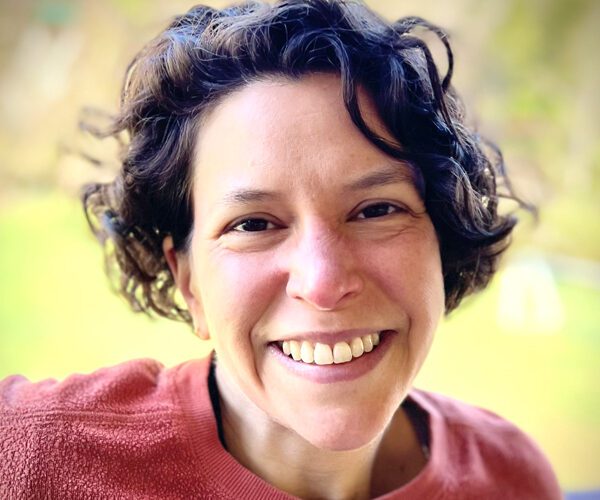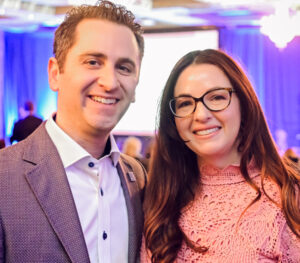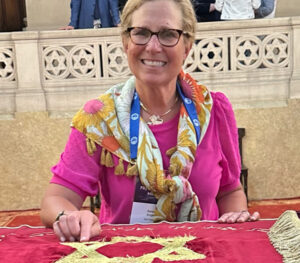Navigating Anxiety As Our World Opens Up
As the world begins reopening and many people begin to venture out, we might expect the anxiety that affected many of us at the start of the coronavirus pandemic would begin to lift.
Not so fast.
Howard Reznick, Manager, Prevention Education at Jewish Community Services (JCS), explains that as we are moving from a mindset of hunkering down to a “Come out, come out from wherever you are (hiding)” mentality, we are all faced with recalibrating our thinking, even individuals without high risk physical health concerns. We’ve all experienced how stressful life can be when you are vulnerable to a serious illness.
“Our brains typically work on automatic pilot,” he says. “It was so taxing emotionally and cognitively; thinking through all the accommodations we needed to make to shelter-in-place. Now, after we settled in and figured it all out, we are asked to adapt – again – to a new, and ever-changing situation. Many are feeling emotionally exhausted.”
At the same time, we are dealing with the uncertainty of not knowing if our new lives are sustainable… a recognition that we do not know how and when this “new normal” will shift or end.
“Stress increases when we don’t have clear expectations. It is creating frayed nerves and we are beginning to see it taking a toll on people,” says Dr. Ruth Klein, Director, Mental Health and Compliance at JCS.
Add to that the numerous additional stresses we are encountering, including job insecurity, safety fears about returning to work and interpersonal concerns.
For example, say Reznick and Klein, anxiety is playing out interpersonally among family members and friends in ways that they never have before. There are family members worried about seeing relatives who have not been as strict in observing social distancing guidelines. In our social circles, friends may be facing widely divergent concerns, from financial difficulties to health issues, due to the pandemic.
Being Proactive in the Wake of Pandemic Stress
Understanding the importance of being proactive in dealing with stress before it impacts your day-to-day life, JCS launched an array of virtual group programs to help people manage the challenges to their emotional, social and psychological well-being.
In the early days of the Stay Home order, the agency began by offering 15-minute online presentations daily called “Lunch Bites.” Video recordings of the 12 Lunch Bites sessions can be viewed at jcsbalt.org/virtual-library.
The agency subsequently began offering small interactive group sessions. Many of these groups utilize a mindfulness approach which combines breath work, movement and meditation to help individuals persevere when faced with challenges and build resiliency.
Mindfulness helps individuals manage physical, emotional and behavioral reactions to changing and difficult situations and has been shown to reduce anxiety. This approach was first introduced in the late 1970s by Jon Kabit-Zinn, who founded the University of Massachusetts Stress Reduction Clinic and Center for Mindfulness.
One JCS program, entitled “Calming Our Nerves, Lifting our Spirits” offered community members a chance to participate in five Zoom sessions which incorporate yoga, meditation, breath-work, mindfulness and principles of positive psychology to help calm nerves and improve decision making.
Part learning and part practicing, Reznick guided participants in exploring our mind and its thoughts, our feelings as they appear in heart, our body and the messages it sends us, and our beliefs and attitudes that can lift us to our higher calling and functioning. “While its not therapy, it can be very therapeutic to practice some of the techniques offered,” says Reznick.
The first series was held in May as part of National Mental Health Month.
This is not the first time that JCS has used mindfulness in its prevention curriculum. In the past year, JCS introduced a mindfulness initiative in area schools. “Be Well”, which was designed for middle and high school students, was implemented in Roland Park Country School, Bryn Mawr and Garrison Forest, while its counterpart, “beeWeLL”, was offered in preschools and early elementary classrooms.
At the same time, JCS is looking to offer this program to area schools, in some form, during the next school year.
In addition to practicing mindfulness, Klein suggests other advice for reducing anxiety. This includes:
- Go back to the basics of eating well, sleeping and hydrating.
- Be kind to your “self.”
- Be kind to others and understand that others are going through their own difficulties that may be different from yours. For example, although you may be worrying about not seeing your grandchildren, a friend may have recently lost a job and is worried about paying bills. Be sensitive to other peoples’ circumstances.
- Seek as much social support as you can, whether that be in person (while physical distancing), through Zoom or through conversations with friends on the phone.
- Routines and structure are important, particularly now when our typical routines are upended.
- Seek therapy if you need it – if feelings of sadness or anxiety are unrelenting, causing significant interpersonal problems, or difficulty with everyday functioning.
If you need help, please call the JCS Helpline at 410-466-9200.
Subscribe to our newsletter
The Associated is a home for everyone in the Baltimore Jewish community. We offer several email lists to help people find a community, engage with their peers and support Jewish journeys around the world.
Join Our Mailing ListAdd Impact to Your Inbox
Sign up for our newsletter
Subscribe to our newsletter
The Associated is a home for everyone in the Baltimore Jewish community. We offer several email lists to help people find a community, engage with their peers and support Jewish journeys around the world.
Join Our Mailing List







 Please Wait while we loading your video.
Please Wait while we loading your video.